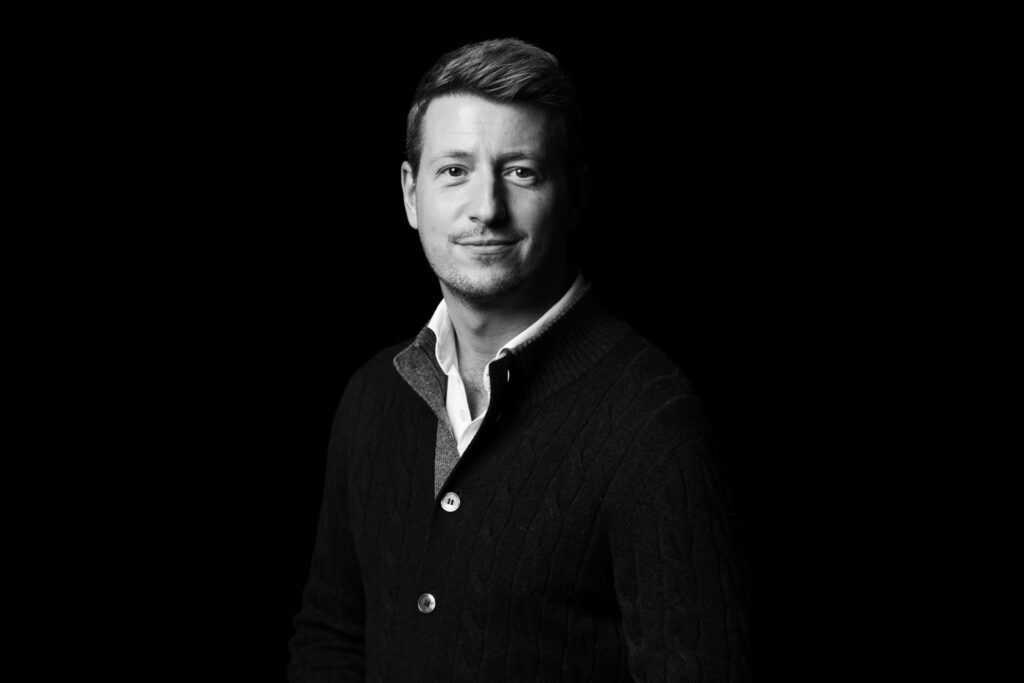Unique music in a thrilling orchestration

Dark and mysterious, powerful and intriguing. This is how musical director Duncan Ward describes Bluebeard’s Castle by Béla Bartók. The work was high on the internationally renowned conductor’s wish list. He therefore speaks very enthusiastically about Bartók and what makes his music so unique, impressive and human at the same time.
It was a long-held desire to conduct Bluebeard’s Castle. Why?
‘Ever since I was a teenager, I have loved Bartók’s music. Bluebeard’s Castle is one of the most exciting, intense, thrilling operas I have ever come across, and that in one hour. Bartók composes passionate, driving rhythms and impressionist harmonies that immediately evoke an image. Listen to the first three notes of the opera and you know: something is off here; it’s dark, unsettling, mysterious. How powerful is that, to evoke a whole world of feeling with just three notes?’
How would you characterise Bartók’s music?
‘His music is firmly rooted in his studies of Hungarian folk music; the dance rhythms, dissonance-inflected melodies, and the text of the language itself affecting the flow of the music through the flexible, natural ‘speech-rhythms’. That’s probably why it sounds so human and honest. There is nothing artificial or academic about Bartók’s work, it is very direct. I think everyone – young and old, from all walks of life – will be caught by the emotional power of this music.’
What is your biggest challenge in performing this opera?
‘Bluebeard’s Castle is incredibly cleverly composed. If we perform it well, it’s a fantastically emotional journey in which the listener gets sucked in. The really big challenge – especially with the orchestra on stage – is to keep the sound balanced. The colour palette is extraordinary; Bartók creates multi-layered sound worlds when opening each door, from soft to very loud. Moreover, he wrote out very specifically how fast something should be played. I therefore have to be very precise in the tempo changes, which – like the psychological relationship between Bluebeard and Judith – constantly shift subtly.’
Are there any particular musical parts that you hope the audience listens to extra attentively?
‘Oh, so many! For example, the blood motif; a minor second [a semitone between two notes, the smallest interval in Western music]. We hear this dissonant sound every time Judith sees blood seeping. In addition, the whole work is uniquely – and also a little oddly – orchestrated. Like the torture chamber behind door one with shrill woodwinds and xylophone figures and violins playing fast tremolo ‘sul ponticello’ – near the bridge. That really is a kind of torture sound. Door three, which hides the treasure chamber, opens with a soft, beautiful D major chord by sustained trumpets and flutes and a swirling celesta. Not exactly instruments you would expect, but they are like glittering jewels. And then door five, behind which is Bluebeard’s kingdom. There the whole orchestra plays full (tutti!), extra trumpets and trombones even appearing especially for that moment. All equally impressive.’
You mentioned earlier that the music is very human. Do you recognise things in this opera from your own relationships?
‘Definitely. I think we all have things we are not easily open about. And I also recognise that sometimes some relationships – not even necessarily love relationships – just don’t work because the energies, ideas or ambitions don’t match. That can be painful, of course, but in a way such an experience is also enriching and gives you insights into yourself (in relation to others). You grow as a person from it. The music constantly comments on this and flows with those moods. And sometimes, when Bluebeard and Judith no longer know how to talk to each other, the music does it for them.’
Extraordinary how music can sometimes say more than words, isn’t it?
‘That’s why we make music! Because words can’t express everything. And that’s why I love it so much. Music can affect your feelings at a deeper layer. Certainly Bartók’s music can.’
Interview: Kyra Bertram
